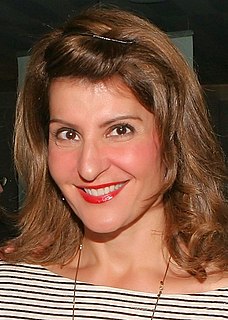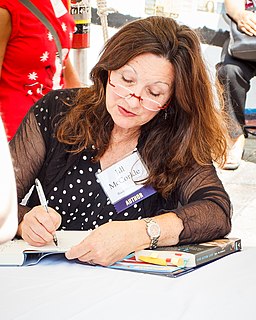A Quote by Scott Turow
I tend to start with a kernel, a vague concept, and just begin to write things down - notes about a character, lines of dialogue, descriptive passages about a place. One idea fires another. I do that for about a year. By then there's a story, and I'll go on to a complete first draft that sews many of those ragtag pieces together.
Related Quotes
I am a technophile, so there is no such thing as a first draft. The first draft plunges on, and about a quarter of the way through it I realise I'm doing things wrong, so I start rewriting it. What you call the first draft becomes rather like a caterpillar; it is progressing fairly slowly, but there is movement up and down its whole length, the whole story is being changed. I call this draft zero, telling myself how the story is supposed to go.
I don't do all the background and the worldbuilding before I start the story. What I do is I work out the bare minimum I need to start the story, and often that really is a bare minimum - it's a character in a situation, and I know nothing about the character, I know nothing about the situation, and then I think about it for a long time, and make notes about where I think the story is going to go and so on, but I don't really make notes to do with the background or the magic system or the world.
When I'm writing a script, before I can write dialogue or anything, I have two or three hundred pages of notes, which takes me a year. So, it's not like "what happens next." I've got things that I'm thinking about but I don't settle on them. And if I try to write dialogue before then, I can't. It's just garbage.
The first thing that happens is the cleansing of the former character. I don't think a lot of actors talk about it, but there is usually a process where you essentially purge yourself of the character played prior to the movie. Then you want to think about what the character represents, and you write down all of the elements about this character and then take the time to find some synchronicity and start breathing the character.
It's a little bit like talking about the life of writing. The life of writing may be about many things, but it always begins with the writer. With the kernel of an idea, or a character, or an idea or a theme, or even an outcome. But for documentary photographers, photographs begin at that intersection of the real world and the imaginative inner world.
Usually when I finish the draft of a book, I'm sure I'll never write another one. I'm just that tired and sick of myself. But then another idea starts percolating. It usually begins with the narrator's name, then some idea that intrigues me about her life or situation. I try to ignore it as long as I can, because I know when I start writing, I'll be right back into it, every single day. But eventually, I just have to. It's a compulsion!
The first draft of everything, I write longhand. One of the nice things about that is that it makes you keep going. If you write a bad sentence on the computer, then it's very tempting to go back and fidget with it and spend another 20 minutes trying to make it into a good sentence. When you're handwriting, you really just have to move on.
I notice that I only publish once every four years. It takes a couple of years to write a book and then, for me, for one reason or another, it usually takes about a year of sort of dicking around before I start up. I write a review or little magazine pieces and touring with the other book. But mainly it's just you're not ready, I'm not ready to start another. You're just not up for it.
It can take years. With the first draft, I just write everything. With the second draft, it becomes so depressing for me, because I realize that I was fooled into thinking I'd written the story. I hadn't-I had just typed for a long time. So then I have to carve out a story from the 25 or so pages. It's in there somewhere-but I have to find it. I'll then write a third, fourth, and fifth draft, and so on.
There are all sorts of theories and ideas about what constitutes a good opening line. It's tricky thing, and tough to talk about because I don't think conceptually while I work on a first draft -- I just write. To get scientific about it is a little like trying to catch moonbeams in a jar. But there's one thing I'm sure about. An opening line should invite the reader to begin the story. It should say: Listen. Come in here. You want to know about this.
I feel very protective in the first draft, when all the pieces are coming together. I work in a way that is not linear or chronological at all, even with the short story. I will just be writing bits and pieces, and then when I have all the pieces on the table, that for me is when it feels like the real work begins.
The thing that was most harmful was that there was always something that was about to happen. So I found myself indulging in the writer's luxury of doing another draft, another idea. If this project isn't happening, then I'll shelve one script and start writing another. And in that way, the years go by, and there's very little money coming in.





































